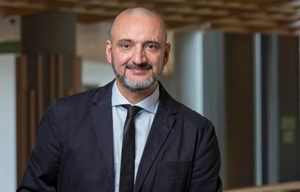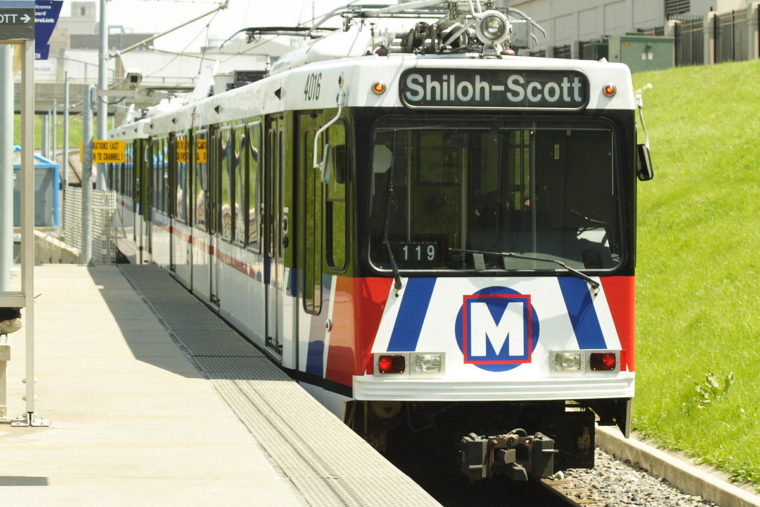A team of researchers from the Brown School is set to investigate the potential health impact of an expansion of the MetroLink light rail system in St. Louis.
Led by professor Rodrigo Reis, the effort will be the first Health Impact Assessment for transit in the region.
Researchers will use data such as traffic, health and economic measures, as well as information from people who live and work near the proposed North-South and Metro North MetroLink routes, to assess the effects the expansion could have on people’s health.

Reis, who has conducted similar studies in Brazil and elsewhere, said Health Impact Assessments have been used in Europe and are becoming more common in the U.S. to help in making policy decisions about urban infrastructure. He likened them to environmental impact statements, but for health.
“When we think about any policies, we have to think about how these policies affect people’s lives,” he said. “We have to think broadly, not only about short-term outcomes but long-term outcomes. We want the community to thrive.”
The 18-month study is called I-HEAL STL (Improving Health and Environment Access through Light-rail in St. Louis) and is being is being funded by a $250,000 grant from the Missouri Foundation for Health. The research team will include Sarah Moreland Russell, assistant professor at the Brown School. Ross Brownson, the Bernard Becker Professor and director of the Prevention Research Center, will play an advisory role.
Reis said focus groups of residents and business owners along the proposed route will help to determine how the new light-rail line might be used and how that could affect health. For example, the new route could lead to increased walking, which affects obesity and diabetes rates. Easier access to health care and food could also have a positive impact.
The results of the study could not only help policymakers to decide whether to pursue the expansion, but also to reveal ways to develop the system to maximize ridership. Reis’ 2012 study in Rio de Janeiro found that residents were especially concerned about safety, resulting in improved security measures at bus stations.
Although Reis believes public transit generally improves public health, he said every project and location is different. “We don’t know what people think about things,” he said. “That’s why it’s important to talk to people, and keep a fresh and open mind so we don’t prejudge. We just listen to people. We are focusing on listening to the community.”
The first phase of the St. Louis study will examine the transit landscape of the proposed route and seek partners who can help get community input, with plans to go into the field in the fall.
Reis said the assessment shows the city is “ready to move.”
“It’s a positive sign for everybody throughout our region,” he said. “I’m super optimistic.”

Comments and respectful dialogue are encouraged, but content will be moderated. Please, no personal attacks, obscenity or profanity, selling of commercial products, or endorsements of political candidates or positions. We reserve the right to remove any inappropriate comments. We also cannot address individual medical concerns or provide medical advice in this forum.